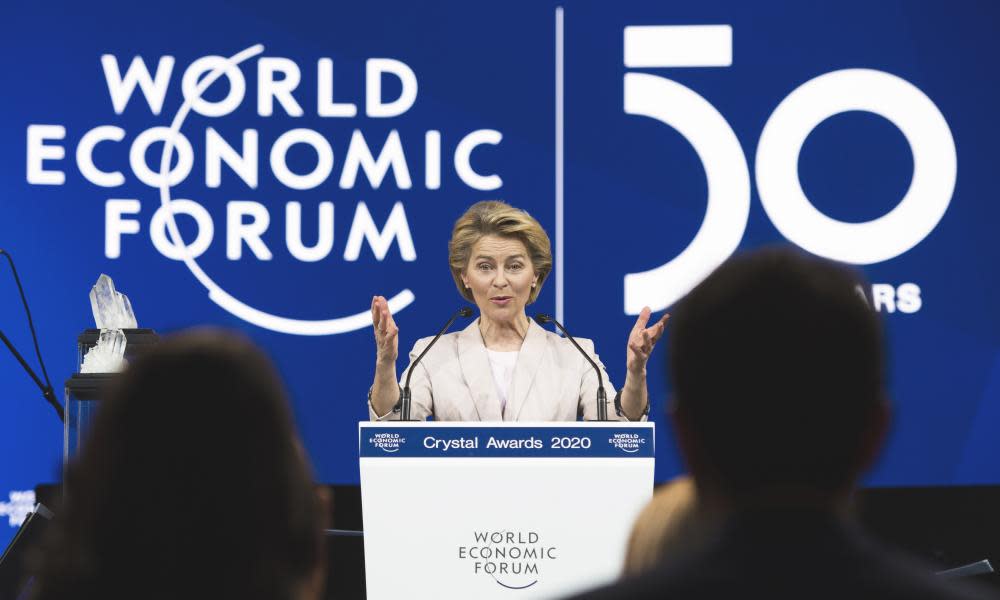The Guardian view on Davos: capitalists know they must do better

When Klaus Schwab founded the World Economic Forum in an Alpine ski resort in 1971, he wasn’t to know that the 30-year postwar boom was on its last legs. The original idea of Davos was to promote the German economist’s big idea of “multi-stakeholding” – the notion that companies had broader social responsibilities than the mere pursuit of profit for shareholders. But the subsequent oil crisis, stagflation and recession put paid to any progressive thinking in the boardrooms of the west. As corporate revenues plunged, a different economist laid the theoretical foundations of a new era. By the 1980s, Milton Friedman’s claim that “there is one and only one social responsibility of business ... to engage in activities designed to increase its profits” was the new common sense in business, particularly in Margaret Thatcher’s Britain and Ronald Reagan’s America.
Since then, financial deregulation and digitalisation have created the conditions for footloose capital to call the shots in a global economy. The figure of “Davos man” – and only 24% of this year’s attendees are women – has become synonymous with a certain kind of deracinated corporate executive, whose only loyalties and obligations are to the balance sheet. But on the WEF’s 50th anniversary, Mr Schwab, now 81, has gamely tried to go back to where he began, making “stakeholder capitalism” the theme of this week’s gathering, and updating the notion of stakeholders to include those concerned to protect the interests of the warming planet.
A wholesale CEO conversion to values of social and environmental solidarity, over the cocktails, would be somewhat surprising. For over 30 years, wages in western economies have stagnated as the proceeds of growth have been funnelled towards shareholders. An Oxfam study this week reveals that the 26 richest billionaires own as many assets as the 3.8 billion people who make up the poorest half of the planet’s population. And Davos 2020 will offer the usual paradoxes that accompany the alleged good intentions of the super-rich, from the private jets which fly business leaders in to discuss global heating, to the $500-plus hotel rooms from which they will review papers on growing inequality.
Something is in the air though. There is evidence that, when it comes to defining the bottom line, the huge societal challenges of the 21st century are prompting a rethink at the vertices of western economic decision-making. The climate emergency, rising nationalism, seismic shocks such as Brexit and China’s emergence as an economic superpower have all undermined the case for pursuing business as usual; some of the world’s largest corporations appear to have realised that they risk serious reputational damage if they do so. Last summer, nearly 200 American CEOs, including the leaders of Apple and Pepsi, committed their companies to sustainable practices and fairer wages. Microsoft last week pledged to be carbon negative by 2030 and announced a $1bn innovation fund to develop carbon reduction technology.
The devil will be in the detail of course. And this week, Donald Trump, who is in the process of withdrawing the United States from the Paris agreement on climate change, will strike quite a different tone on the Swiss slopes. But as Mark Carney and, yesterday , the IMF, have pointed out, the existential threat represented by global heating menaces company profits as well as lives, homes and communities. That is a truth that might have given even Milton Friedman pause for thought. Five decades on, Mr Schwab’s big idea might at last be about to get a proper hearing.

 Yahoo News
Yahoo News 